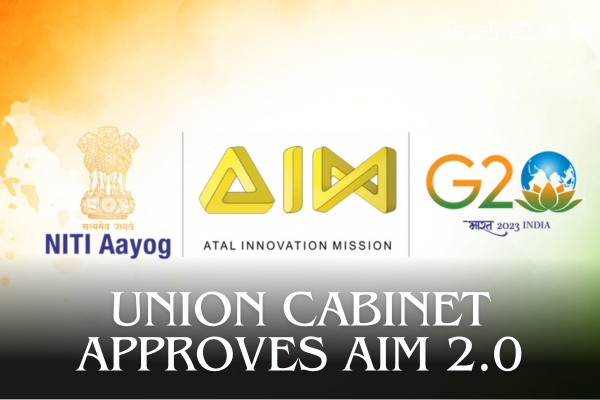Union Cabinet Approves Atal Innovation Mission 2.0 with Enhanced Scope
Strengthening India’s Innovation Ecosystem
The Union Cabinet, led by Prime Minister Narendra Modi, has approved the continuation of the Atal Innovation Mission (AIM) under NITI Aayog. AIM 2.0, allocated a budget of ₹2,750 crore, will run until March 31, 2028. This flagship initiative aims to deepen India’s innovation and entrepreneurship ecosystem, supporting the vision of a Viksit Bharat (Developed India).
With India ranked 39th on the Global Innovation Index and holding the world’s third-largest start-up ecosystem, AIM 2.0 seeks to elevate the nation’s global competitiveness. It will promote job creation, innovative products, and high-impact services across industries, marking a shift from building foundational infrastructure under AIM 1.0 to scaling successful initiatives and filling ecosystem gaps.
Key Focus Areas of AIM 2.0
AIM 2.0 will target three primary goals:
- Increasing input: Encouraging more innovators and entrepreneurs to join the ecosystem.
- Improving throughput: Enhancing success rates for start-ups.
- Boosting output quality: Creating better jobs, products, and services.
Programmes to Expand Inputs
- Language Inclusive Program of Innovation (LIPI):
This initiative will build innovation ecosystems in 22 scheduled languages, breaking barriers for non-English-speaking innovators. It includes establishing 30 Vernacular Innovation Centres within existing incubators. - Frontier Program:
Focused on regions like Jammu and Kashmir, Ladakh, North Eastern states, and Aspirational Districts, this program will develop 2,500 new Atal Tinkering Labs (ATLs) to cater to 15% of India’s population.
Programmes to Improve Success Rates
- Human Capital Development Program:
This system will train professionals such as managers and educators to operate and sustain innovation hubs, aiming to produce 5,500 experts. - Deeptech Reactor:
A research sandbox for deep-tech start-ups requiring extended investment and time to market. At least one Deeptech Reactor will be piloted. - State Innovation Mission (SIM):
Helping states and Union Territories build innovation ecosystems tailored to their strengths. - International Innovation Collaborations:
Expanding India’s ecosystem globally through initiatives like an Annual Global Tinkering Olympiad and partnerships with the UN and advanced nations.
Programmes to Enhance Output Quality
- Industrial Accelerator Program:
Engaging industry in scaling advanced start-ups, with at least 10 accelerators established in critical sectors through Public-Private Partnerships (PPP). - Atal Sectoral Innovation Launchpads (ASIL):
Developing platforms in key ministries to integrate start-ups into major industries, with a minimum of 10 launchpads planned.
Advancing India’s Innovation Goals
AIM 2.0 builds on the accomplishments of AIM 1.0, including the establishment of ATLs and Atal Incubation Centres (AICs). It represents a strategic leap forward, aligning with India’s aspirations for global leadership in innovation and entrepreneurship.





